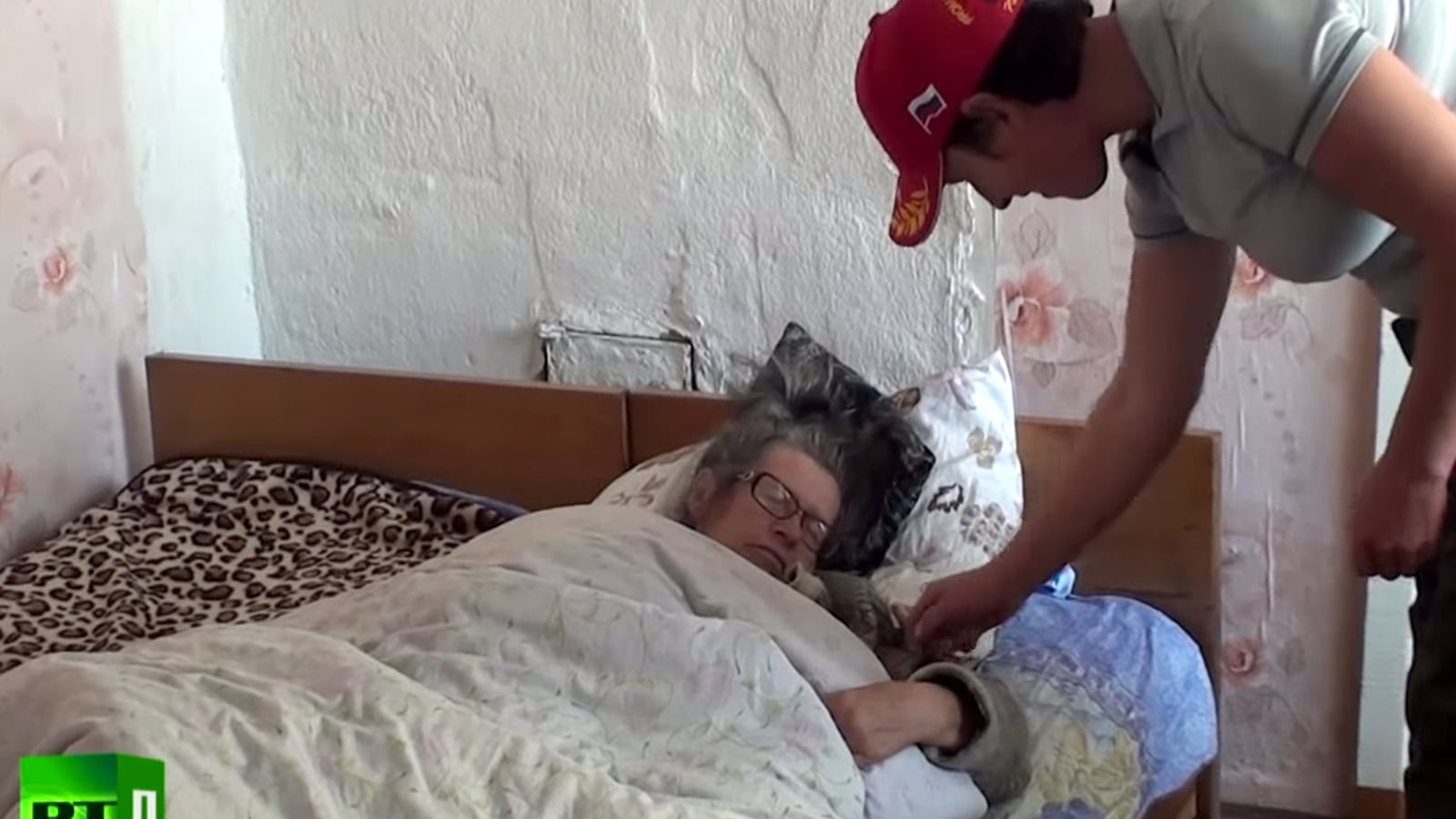A small town in Kazakhstan has been cursed with a mysterious sleeping spell that sends residents into long, unexplainable fits of sleep, and may now force them to pack up their homes and flee for safety in neighboring communities.
Nearly a quarter of the residents of Kalachi, a tiny town of barely 600 in northern Kazakhstan, has been affected by this fairy tale curse.
Over the past five years, there have been 120 cases of patients falling into a deep sleep without warning—entire groups of market vendors, a handful of kids on the first day of school, a man on his motorcycle doing errands.
Upon waking up, sometimes up to six days later, they have persistent memory issues, confusion, and headaches. Rather than slowing up, the Kalachians have been unwillingly knocked into slumber with increasing regularity over the past two years.
When the first cases were identified in 2010, researchers and scientists came to investigate the unusual phenomenon and identify its cause. But five years and 20,000 tests later, no conclusion has been reached.
At first, doctors wondered if the local vodka supply had been tainted, but that did little to explain the spate of incidents. Bacterial and viral infections were crossed off the list, too.
The most plausible early theory was that the neighboring Soviet-era uranium mines were leaking radon gas and being blown into the town.
From the 1960s to 1990s, the area produced uranium ore as a secret mining town controlled by Moscow, but it was discontinued after the Soviet Union dissolved.
Even though the mine was found to have radiation levels 16 times the average by an RT documentary film crew, there was no alignment in the symptoms of radon poisoning.
Sergei Lukashenko, the director of Kazakhstan's National Nuclear Centre's Radiation Safety and Ecology Institute, and a team of 15 scientists have been “trying to crack this mystery,” he told The Siberian Times.
He dismissed the radon poisoning, and instead noted there were unusually high levels of carbon monoxide in the air—possibly 10 times higher than it should be—and called it “definitely a factor.” But he couldn’t say with certainty if this was the root cause.
With no explanation for what ails them, panicked townsfolk have been fleeing their homes for shelter from the sudden sickness. “We need to escape now, there is no future for us here,” 21-year-old Olga Samusenko told the Siberian Times.
“Everyone is leaving. Many people have sent their children to relatives in other cities and villages. It is so scary. No one can explain us anything. We still do not know what's going on. My children have not been outside since September. I am afraid to let them out.”
In January, a delegation of regional politicians visited the town and offered jobs and housing on farms and nearby villages.
They estimated that more than half of the population was preparing to leave, and by February at least 25 families had already gone. The older residents have expressed resistance to being uprooted, but officials announced that they may shutter the whole village in May if a solution hadn’t been found.
“Some measures must be taken,” the mayor, who also suffered from the sickness, told The Guardian.
“This is a good chance for the residents of our village to find a new home and a new job.”






